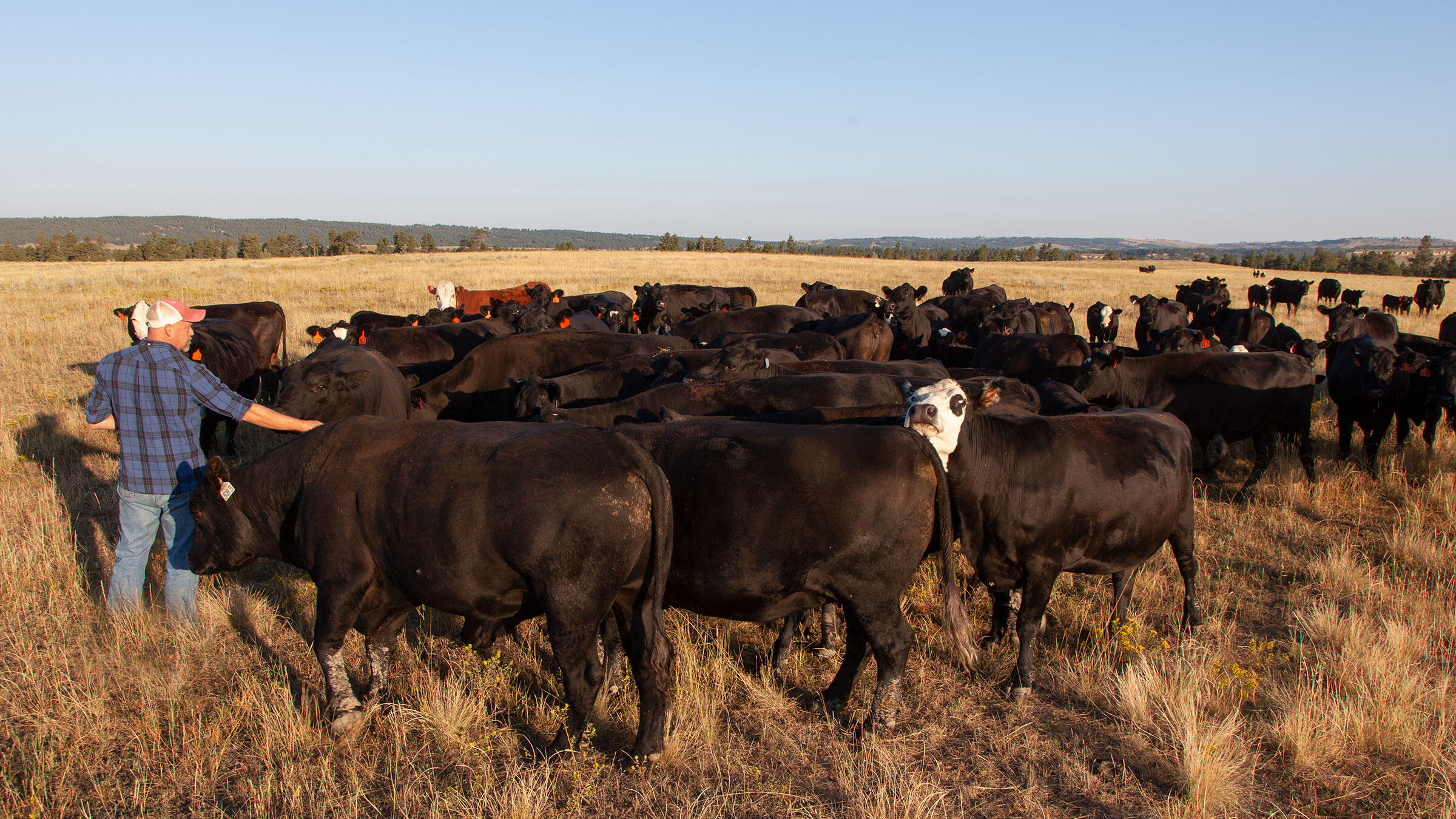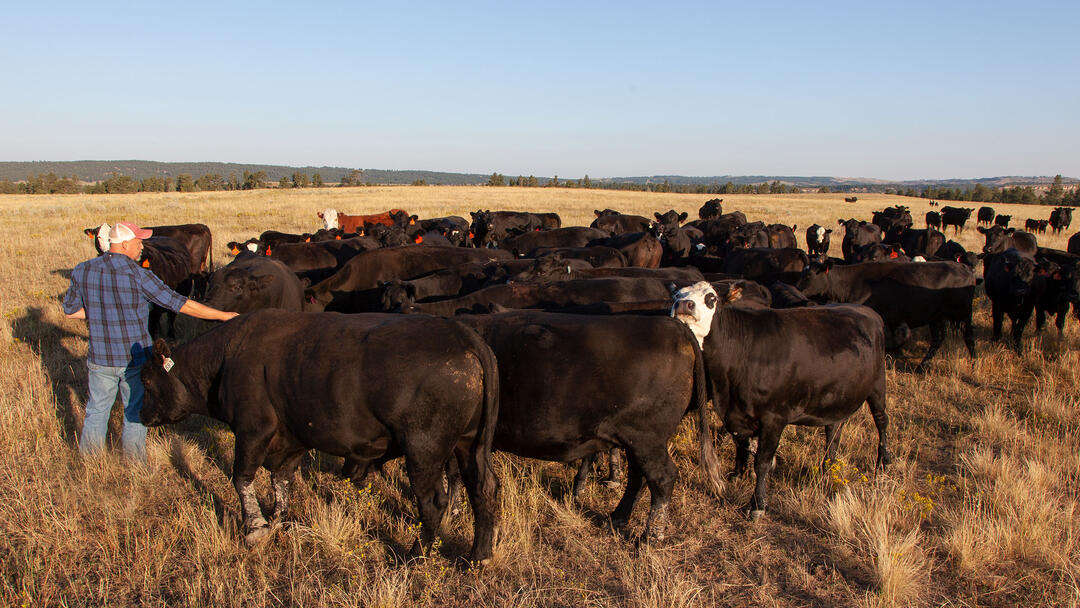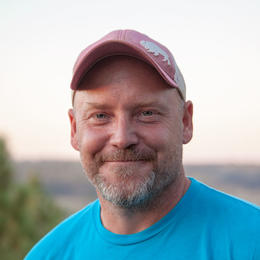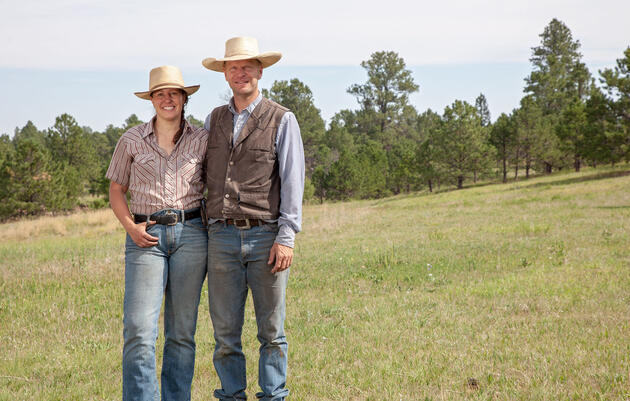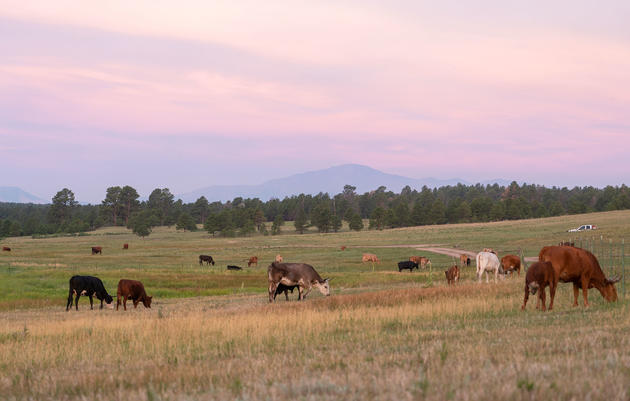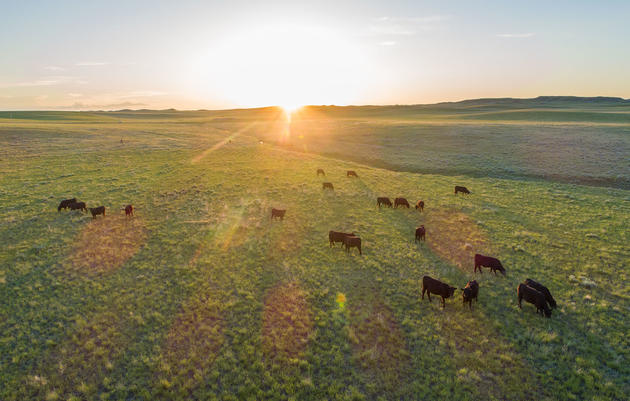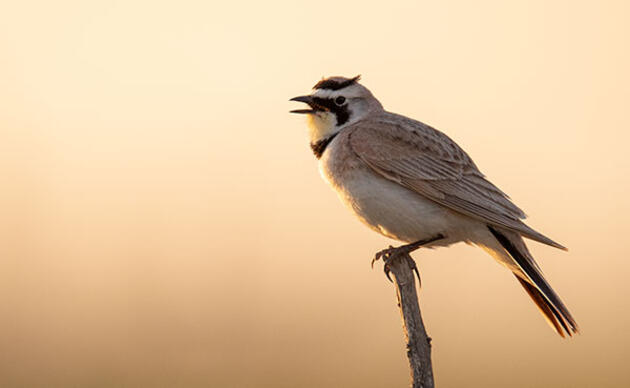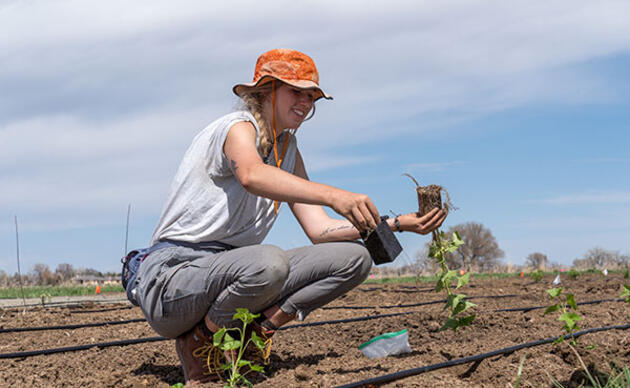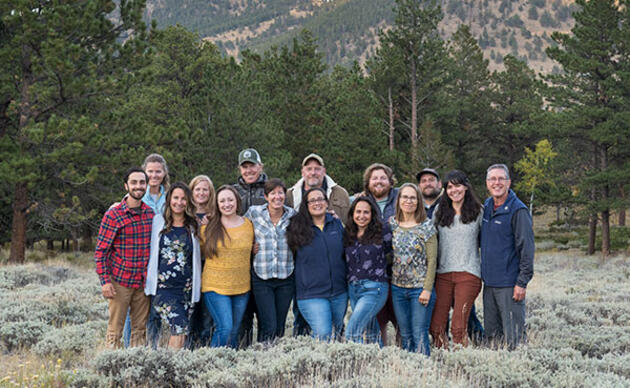It was far too early in the morning for most folks to be up and about, but I knew this late April freeze could be deadly to any new calf the was unlucky enough to come into the world during it. Sure enough I found a young baldy calf lying on its side; cold, scared, and no longer struggling very hard. You will be happy to know that a warm fireplace and a few drinks of saved up colostrum got him up and ready to find his momma and start his new life.
That is animal husbandry in a nutshell and every rancher feels it to our core. That’s one reason ranchers who participate in Audubon’s Conservation Ranching Initiative sign up. As a rancher in the program I know that I must take care of the land so that it can take care of my livestock, which is also good for the birds and wildlife, but often overlooked is the strong sense of duty to also take care of my community.
The pandemic is affecting the whole country, no matter if you live in the largest of urban centers or if you live in the most remote rural county. As ranchers, we are lucky to have the lifestyle that affords us the ability to work outside, on land that was often ranched on by mothers and fathers, grandmothers and grandfathers, and so on and so forth. We also know that at a time like the pandemic of 2020, it is up to us to continue to provide meat to the communities that rely on us.
Audubon’s Conservation Ranching Initiative highlights ranches across the region that serve the highest quality beef in the most sustainable way. But that is not the whole story. As prices on toilet paper went through the roof, (if you could find it), the men and women of the Audubon Conservation Ranching Initiative did not price gouge, they did not horde, they stepped up to the challenge and made sure that their products were widely available to as many people as they could.
As a nation we need to rethink the supply chain. Lance Wheeler at the Rafter W Ranch near Simla, Colorado, puts it this way: “We hope that it will become more localized and adaptive. That each community develops the ability to feed all of its residents locally, providing greater food security.”
The pandemic made everyone think harder than ever about where their food comes from. For those of you considering making a commitment to food raised locally and in harmony with the land, here are some questions and answers with Lance of Rafter W Ranch and Kelli Parker of Parker Pastures in Gunnison, Colorado, the owners of two excellent ranchers certified by Audubon's Conservation Ranching Initiative:
DD: What was you and your family’s time in quarantine like?
LW: We really weren’t in quarantine on the ranch. Day-to-day operations had to continue as normal.
KP: To be honest, it was not very different from ordinary life! We educate our children from home and love to be at home as a family. What did change was the demand for our direct market meats through online sales. Our sales increased 500 percent. We felt blessed because we had a lot of inventory in the freezer available, and our long relationship with our butcher allowed us to secure more processing appointments than we had already scheduled. So this time has actually been an incredible financial blessing to us.
DD: What did you do differently during quarantine?
LW: We became more conscious of our customers’ needs to social distance and be careful when making deliveries to encourage their confidence in us and what we are providing
DD: Why do you feel that ranching and beef production was so important during the quarantine?
LW: These efforts ensured that families could access high quality food when the “normal” system began to fail.
KP: We had a lot of folks stocking up so that they felt secure about being able to feed their families if things escalated. We also had a lot of new customers tell us that they had been meaning to find a rancher raising healthy grass-fed meats in a way that they could feel good about eating and feeding their families, and the time finally seemed right.
DD: How has your business been during the pandemic?
LW: Sales have been very robust locally and we have shipped much more both in state and out of state.
KP: Awesome.
DD: Did you raise your prices during the pandemic?
LW: No, all of the product already in inventory remained at the same price.
DD: What do you think the moral obligation of being a rancher meant to you during the pandemic?
LW: We worked to define our highest moral imperative, which is to say that we endeavored to adapt to ensure that we could accommodate as many people as possible.
KP: The same as always! Feeding our communities healthy food that is truly good for them, and raised in a way that honors the animals and regenerates the land.
DD: Did you limit large orders in order to supply the most customers?
LW: Yes, we limited down to only a few 1/4’s. No 1/2’s or wholes to afford more families the opportunity to put food in their freezers. See moral obligation above.
KP: We now reserve about 1/3 for pre-sold bulk orders (1/4, 1/2, whole), 1/3 for current wholesale customers, and 1/3 for our Ranch Club monthly subscriptions. After we sold out of stored inventory, we stopped offering meat by the piece and our weekly specials, which is a bummer! But the processor is now booked solid so though we have more beef, we don’t have more processing appointments.
DD: How do you think the beef industry will change in the coming years because of what we have experienced?
LW: We hope that it will become more localized and adaptive. That each community develops the ability to feed all of its residents locally, providing greater food security.
KP: We may see more ranchers selling their meats directly to customers, but we’ll need more small-scale processors to accomplish this.
DD: What do you think was the biggest driver that led to an increased demand for beef?
LW: Fear of running out of food.
KP: Health and security.

